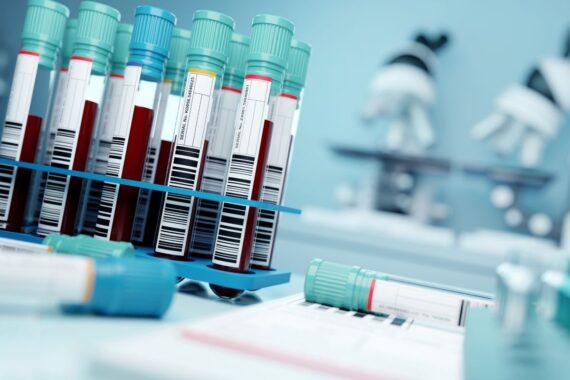GPs in London have ‘lost faith’ in their local pathology service amid claims of ‘inaccurate’ test results and reports of large backlogs.
Synnovis, a pathology provider serving almost 200 practices in South East London, has come under fire this month after GPs told the BBC that unreliable blood results were a regular occurrence and often led to unnecessary hospital referrals.
The company told Pulse ‘significantly less than 0.001%’ of daily tests had ‘erroneous’ results.
Last year, the provider was hit by a major ransomware cyber-attack which caused months of disruption for GP practices, with the majority of GP-requested pathology tests being postponed at the time.
But local GP leaders claimed there were wider issues with the provider, calling for Synnovis to be held to account for a ‘series of problems including and pre-dating the cyber-attack’.
Londonwide LMCs told Pulse that they cannot ‘rely on Synnovis for accuracy’ and that similar problems with accuracy have ‘occurred repeatedly’.
Synnovis has admitted to a backlog last year of 70,000 test results, which it said was caused by processing issues between two third-party systems.
The provider stressed that it worked to clear this backlog within days and provided GPs with regular updates.
Anonymous South East London GPs also told the BBC of problems particularly with test results erroneously showing high potassium levels, caused by delays in processing the samples.
Due to the potential risks associated with this, GPs said they have been forced to refer patients immediately to A&E, even if they believe the results to be incorrect.
Medical director for South East London LMC Dr Sara Riley told Pulse that ‘delayed or inaccurate results mean anxiety for patients’ as well as ‘the potential for late diagnosis’ and extra workload for GPs who have to ‘hold risk’ while dealing with backlogs.
She continued: ‘In many cases the same or similar problems have occurred repeatedly and there really does need to be some accountability for the effect this has on patients and their GPs.
‘We do not believe we can rely on Synnovis for accuracy, our GPs have lost faith and trust in the service. There are big questions to answer about how it is held to account for a series of problems including and pre-dating the cyber-attack.’
Dr Riley also pointed out that there also are ‘no extra resources’ to cover additional GP workload associated with backlogs.
GPs did see some compensation last year as a result of the cyber-attack, with South East London ICB providing £420,000 to manage unprocessed tests.
The ICB also decided to protect practice income from locally commissioned schemes against 2023/24 achievement levels.
At the time, Londonwide LMCs said this was only ‘modest compensation’ and called for wider national support from NHS England.
In response to the most recent claims, Synnovis stressed that ‘erroneous’ tests account for ‘significantly less than 0.001% of the 150,000 tests’ it processes each day.
A spokesperson continued: ‘While rare, we understand that any errors can cause patient and practitioner distress and will always investigate any quality and safety concerns raised by GPs.
‘We remain fully confident in our ability to provide excellent support to the clinicians of south east London and, together with the GSTT and KCH NHS Foundation Trusts, will continue to prioritise engagement with the local GP community.’
In July last year, Pulse reported on blood testing issues for GPs after University Hospital Southampton trust transferred to a new pathology IT system which resulted in problems with processing tests and communicating results.












